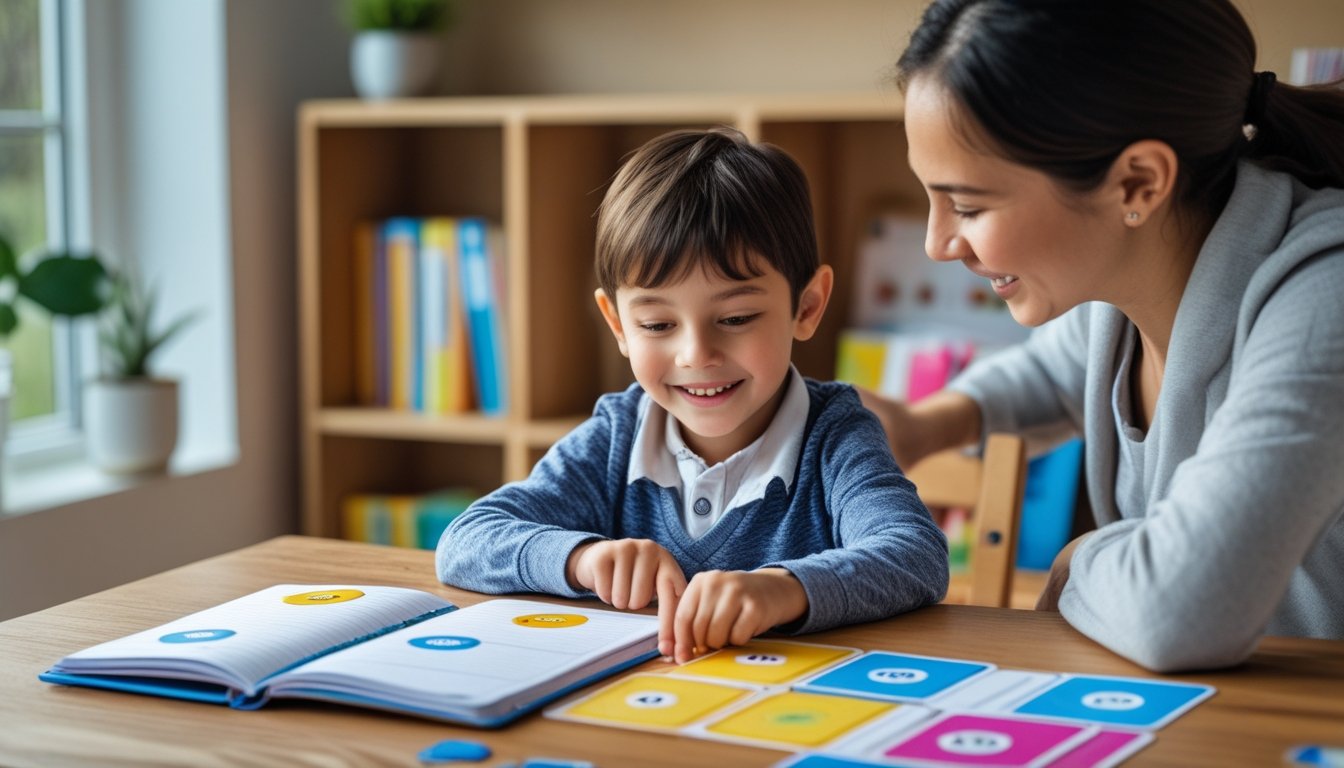Late updated: 25 Sep 2025 11:09
Written by:
Tips To Boost Your Child's Memory Skills: Effective Strategies For Parents
Every parent wants their child to excel, both in school and in life. Our children's capacity to remember plays a dominant role in this. Memory is not just about recalling facts for school tests; it’s a foundation for all types of learning. Effective techniques and strategies can make a significant difference in boosting our children's memory skills. By integrating these methods into their daily routine, we can help them build a robust memory that supports their learning and development.

Understanding how memory works in children is crucial. These are formative years where various activities and habits can sharpen their memory measures. With the right approach, we can unlock their full potential through fun and engaging methods that capture their interest and make learning enjoyable.
Achieving these improvements does not need to be complicated. Simple adjustments and daily practices can turn memory enhancement into an enjoyable journey for both parent and child. Let's explore the actionable tips and proven strategies that will equip our children with the skills they need for success.
Key Takeaways
- Memory skills development is crucial for a child's learning.
- Engage with effective strategies to boost memory.
- Daily practices can make memory enhancement fun.
Fundamentals of Memory Skills in Children
Memory is an essential skill for children's cognitive development and learning success. Understanding how memory functions and evolves in childhood is key to fostering these skills effectively.
Understanding Types of Memory
Memory in children can be segmented into different types: short-term, working, and long-term memory. Short-term memory is the immediate holding space for information, typically lasting a few seconds to a minute. This is crucial for simple tasks like retaining a new phone number momentarily. Working memory builds on this by allowing children to manipulate the information temporarily held, such as following multi-step instructions or solving math problems. Long-term memory, on the other hand, stores information for extended periods and aids in learning new concepts and skills over time.
How Memory Develops in Childhood
Memory development isn't uniform; it varies significantly among children. Infants start with basic recognition and gradually progress towards more complex tasks. Most memory enhancements occur in early childhood, with significant improvements in working memory during primary school years. Factors such as neuronal growth and synaptic connections in the brain bolster memory power, while external influences like educational environment and parental involvement play pivotal roles. Various exercises and nutrition also impact memory development, and engaging activities that encourage recall and recognition assist in strengthening these memory skills.
Importance of Memory for Learning Success
Memory skills are foundational to a child's academic performance and learning success. Effective memory allows for the efficient assimilation and retrieval of information, facilitating better problem-solving and comprehension abilities. Without a robust working memory, children may struggle with tasks requiring mental organisation or the retention of new information. Long-term memory is equally important as it is vital for accumulating knowledge over time. Hence, nurturing these skills is essential for a successful educational journey, as it empowers children to approach learning with greater confidence and competence. Techniques like mnemonics, visual aids, and regular practice can significantly enhance these skills, providing children with a valuable toolkit for their academic challenges.
Proven Strategies to Boost Your Child's Memory Skills

Children can greatly enhance their memory skills through engaging activities that incorporate active learning, games, everyday tasks, and problem-solving exercises. These strategies not only strengthen memory but also provide a fun and effective way for kids to improve their cognitive abilities.
Encouraging Active Learning Techniques
Active learning places children at the centre of the educational experience, prompting them to actively engage with new information. Techniques such as teaching back what they've learnt, making connections to familiar concepts, or drawing mind maps can significantly enhance retention. Asking open-ended questions encourages children to think deeply and articulate their thoughts.
By involving multiple senses, children can create robust memory pathways. When we weave these active learning techniques into daily life, we enhance our children's capacity to retain information more effectively.
Building Memory Through Play and Games
Incorporating play into learning transforms memory improvement into an enjoyable experience. Memory games like matching cards or puzzles provide a stimulating way for children to enhance recall and memory power. The Sneaky Importance of Play: Traditional games such as "Simon Says" or "I Spy" sharpen focus and strengthen working memory.
Developing a storytelling game can encourage kids to craft stories based on random objects or images. This not only boosts creativity but also prompts them to remember and connect disparate elements seamlessly.
Strengthening Working Memory with Everyday Activities
Working memory serves as the mental workspace for holding and manipulating information. We can bolster this through simple, routine activities. Encouraging children to remember and execute a list of tasks can be a practical exercise. Cooking or baking together provides an excellent opportunity for them to follow multi-step instructions.
Daily chores, completed without reminders, also instil a sense of responsibility while enhancing working memory. These activities reinforce a child's ability to process information, crucial not just academically but in all areas of their life.
Promoting Problem-Solving and Critical Thinking
Problem-solving and critical thinking significantly contribute to a child's cognitive development and memory skills. These skills can be cultivated through challenges that require reasoning and solution-finding. Engaging Activities: Building with blocks or completing age-appropriate puzzles encourages strategic thinking. Discussing potential solutions to hypothetical scenarios can develop critical thinking.
By creating a supportive environment where mistakes are seen as learning opportunities, we empower children to approach problems creatively and with confidence. Emphasising these skills aids in enhancing their ability to retain knowledge effectively.
Frequently Asked Questions

Understanding how various factors influence a child's memory skills is essential. From diet and exercise to sleep and effective learning techniques, each plays a vital role in cognitive development.
What activities can enhance memory retention in children?
Engaging children in interactive activities like puzzles, memory games, and storytelling can significantly boost their memory retention. These tasks not only stimulate cognitive abilities but also make the learning process enjoyable.
How does diet impact a child's cognitive abilities?
A balanced diet rich in omega-3 fatty acids, antioxidants, and vitamins supports brain health and cognitive functions. Foods such as fish, nuts, fruits, and vegetables contribute to better memory and focus.
In what ways does physical exercise contribute to memory improvement in youngsters?
Regular physical activity enhances blood flow to the brain, which can improve memory and learning capabilities. Activities like running, swimming, or even playful games can have profound effects on cognitive health.
Are there any effective mnemonic devices suitable for children's learning?
Mnemonic devices like acronyms, rhymes, and songs can help children remember information more easily. Creating visual story maps or using familiar tunes can make recalling facts both fun and efficient.
How much does sleep influence a child's ability to remember and learn?
Adequate sleep is crucial for memory consolidation and learning. During sleep, the brain processes information gathered during the day, which supports long-term retention and understanding.
What role does repetition play in strengthening a child's memory capacity?
Repetition is fundamental in reinforcing memory and aiding recall. Repeated exposure to information, whether through reading, verbal practice, or interactive activities, helps solidify knowledge and improve retrieval skills.
